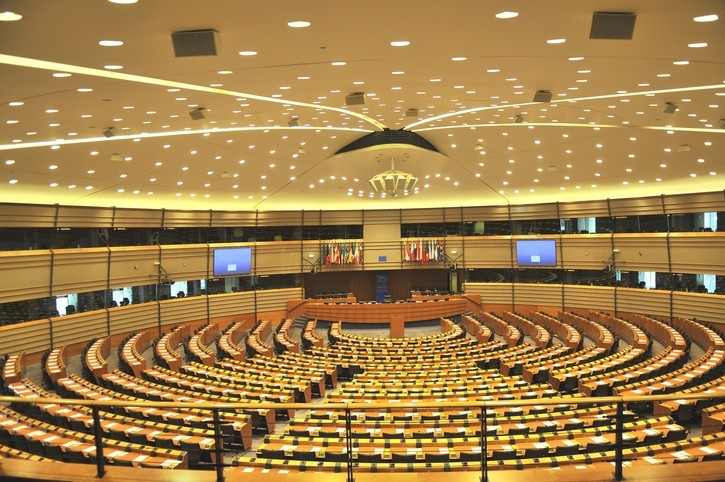MEPs reject bill to cut pesticide use in half

Members of the European Parliament (MEPs) rejected the Sustainable Use of Plant Protection Products Regulation (SUR) today, which aimed to slash the use of chemical pesticides in half by 2030. There were 299 votes against and 207 for the bill; 121 MEPs abstained.
The Commission must now consider withdrawing the proposal.
Rapporteur MEP, Sarah Wiener, said it was “a very dark day for the environment and farmers."
Campaign groups in favor of lowering the use of such chemical substances in EU farming said the striking down of the draft legislation was a direct result of agro-industry lobbying efforts.
Those advocates argued that despite the wide scientific and public consensus on the need to phase out pesticides, the originally ambitious Commission regulation proposal had been strongly watered-down with the adoption of amendments suppressing national binding targets and rules for integrated pest management. The result, they continued, is that MEPs decided to vote against the emptied-out proposal.
Madeleine Coste, Slow Food advocacy director, said a majority in the Parliament decided to "side with the agroindustry and its allies, who have lobbied against this proposal over the last two years, ignoring the scientific consensus on the need to transform our current food system.
"It is outrageous that scientists’ and citizens’ voices are ignored in this way, and a worrying prospect for the fate of the EU Farm to Fork Strategy, and the transition to sustainable food systems.”
Clara Bourgin, food, farming, and nature campaigner at Friends of the Earth Europe, said conservative MEPs "delivered the final blow" to the law. “We’re now back to square one, with no proposal to tackle the biodiversity crisis, secure long-term food security and protect people’s health.”
Yoann Coulmont, campaigner at Générations Futures, said the regulation was a big part of the EU Green Deal on agriculture and an opportunity to engage the transition of agrifood systems at EU-wide level. “MEPs missed the boat, worse: they sank it, with all the efforts to assure the right to a healthy environment and sustainable food sovereignty."
Opposition to the pesticides plan
EU farming lobby, Copa-Cogeca, welcomed the rejection of the bill by MEPs today, saying that “solutions can only be found through dialogue with farmers and their cooperatives, not by imposing disconnected objectives from the top.”
It along with FEFAC, EU feed industry representatives, and a raft of other EU food and farming organizations, sent a joint open letter to the Commission back in November last year warning about the negative impact of the SUR on the EU agricultural value chain, given the aftermath of the COVID-19 pandemic, the Russian invasion of Ukraine, and the effects of climate change.
These external factors, they stressed, had heavily affected the availability and affordability of critical inputs such as fertilizers, energy, and feed, leading to a significant increase in farmers’ production costs and an increased risk of reduction of production in the short and medium term.
Policy measures need to take into consideration the consequences and downsides of reduction targets for plant protection products (PPPs) for all actors in the food chain, they said, adding that there was a need to provide alternatives before withdrawing chemical solutions.
“Producers need to have access to safe, effective, and affordable tools to ensure satisfactory crop protection and thus food security, while preserving feed and food safety.
“We believe that through collaboration and innovative solutions we can drive the transition to a more sustainable production model. Access to solutions including biocontrol technologies, digital and precision tools, new genomic techniques (NGTs) as well as resilient seed varieties will help strengthen the farmers’ toolbox and support Europe’s goal of more resilient food systems.”








